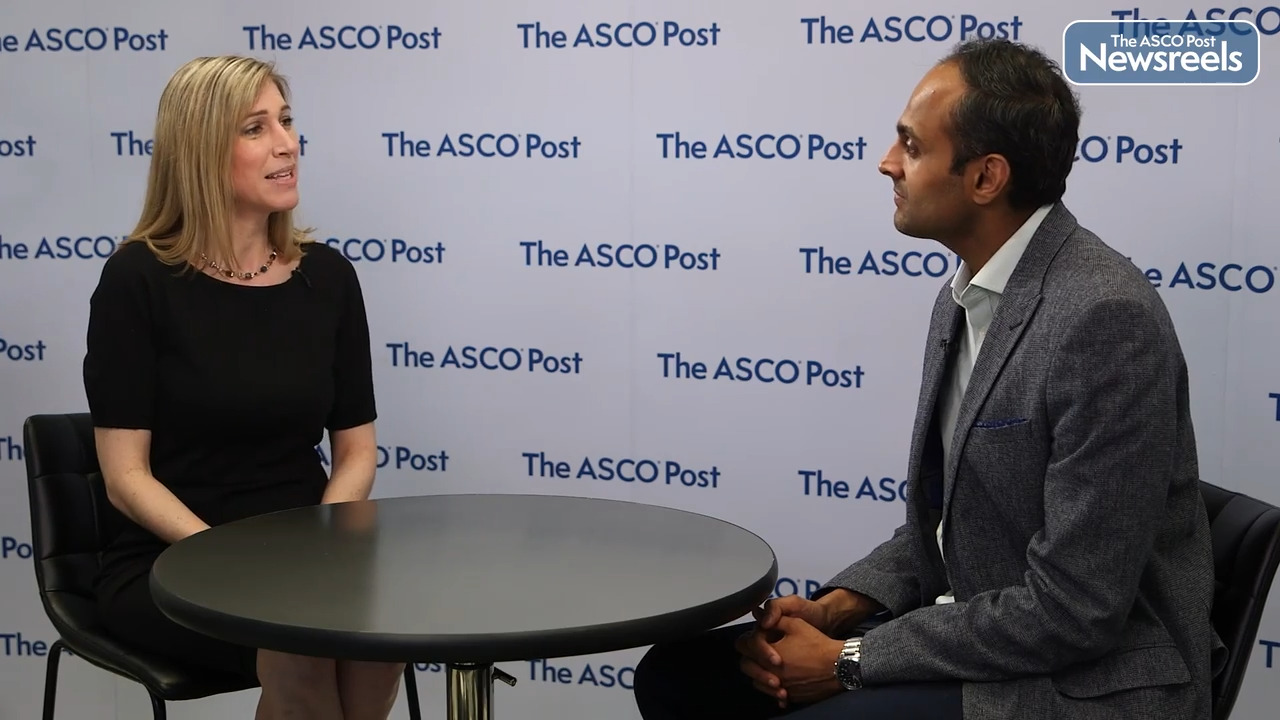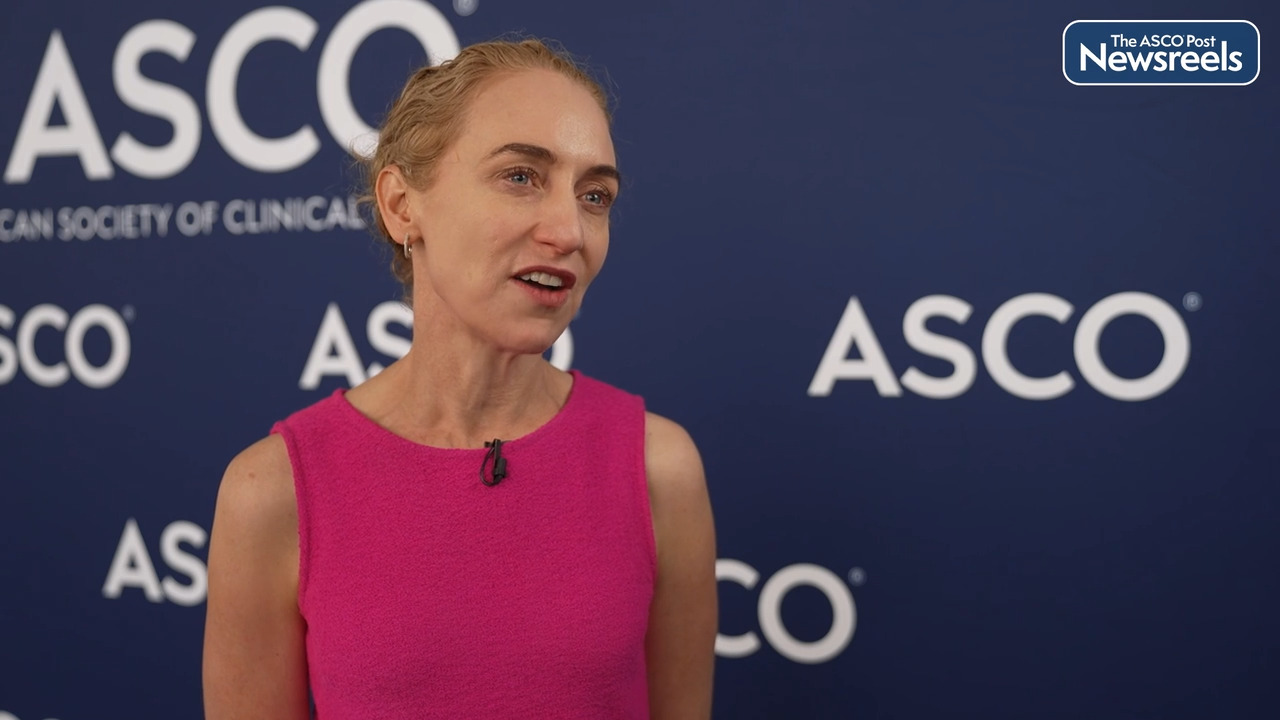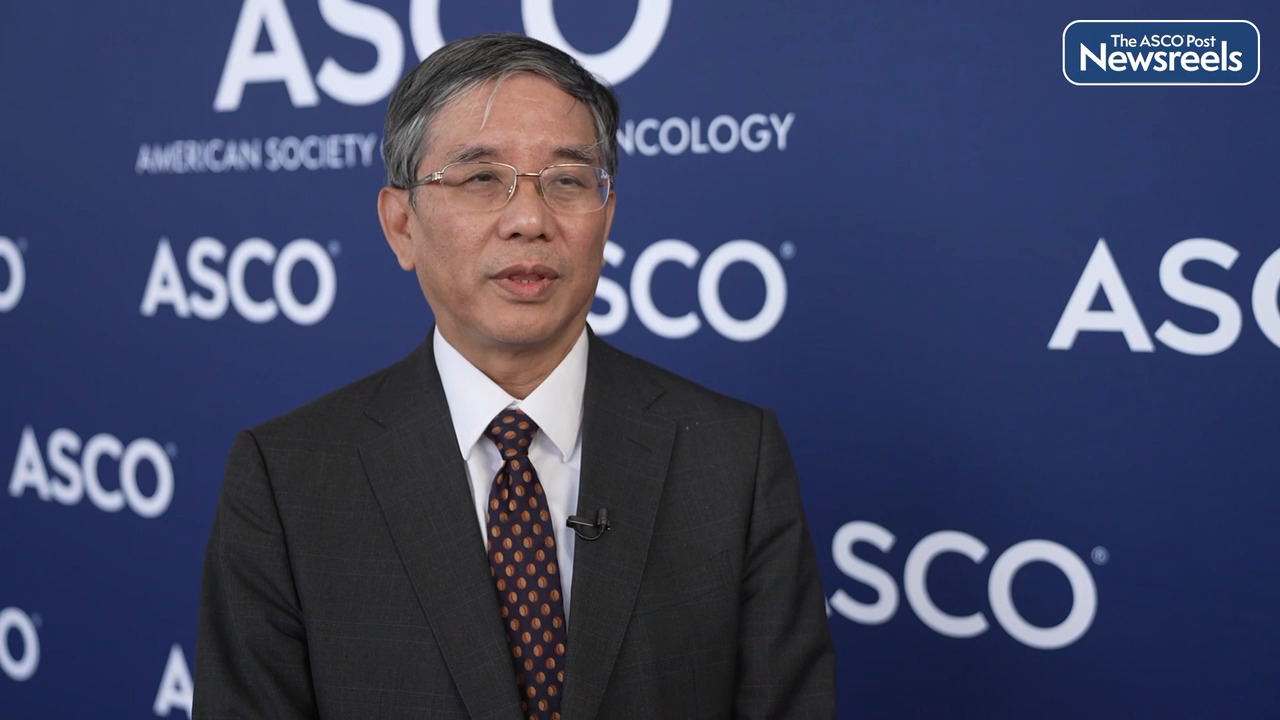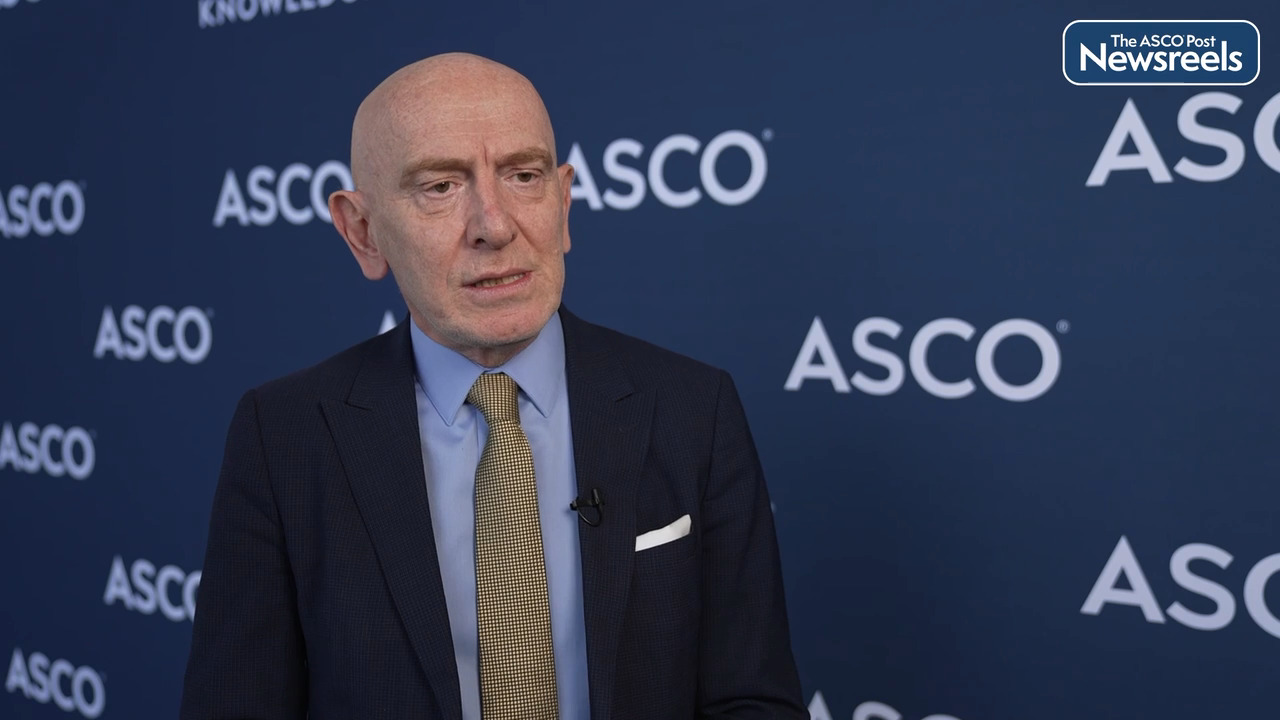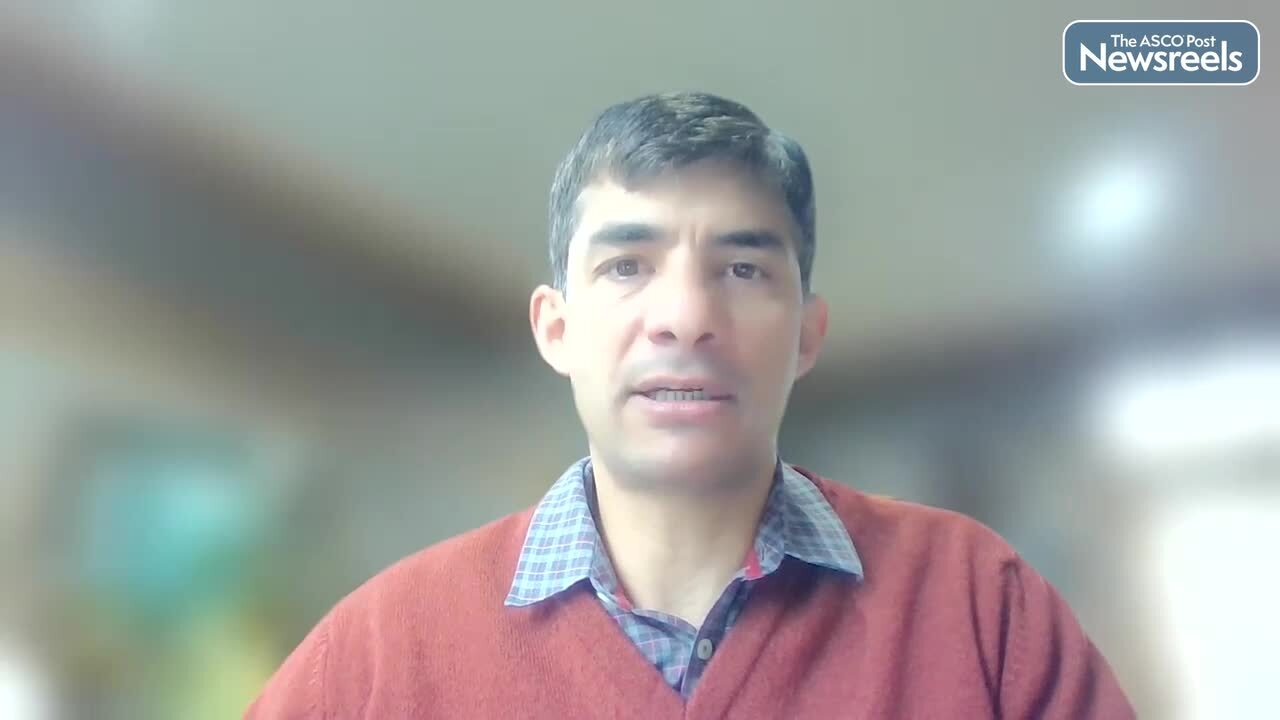Clifford A. Hudis, MD, on ASCO 2023 Perspectives: The Power of Connecting and Collaborating
2023 ASCO Annual Meeting
Clifford A. Hudis, MD, ASCO Chief Executive Officer, talks about extending the reach and impact of ASCO by partnering with patients who play a key role in advancing science through clinical trial participation. With near-record numbers of registered attendees, the 2023 Annual Meeting fostered new connections and plans for collaborations.
The ASCO Post Staff
Alicia K. Morgans, MD, MPH, and Praful Ravi, MRCP, MBBChir, both of Dana-Farber Cancer Institute, discuss an individual patient-data analysis of randomized trials from the ICECAP collaborative. A PSA nadir of ≥ 0.1 ng/mL within 6 months after radiotherapy completion was prognostic for prostate cancer–specific, metastasis-free, and overall survival in patients receiving radiotherapy plus androgen-deprivation therapy for localized prostate cancer. These findings may help identify patients for therapy de-escalation trials (Abstract 5002).
The ASCO Post Staff
Georgina V. Long, MD, PhD, of Melanoma Institute Australia and The University of Sydney, discusses new data showing that patients with resected stage IIB/C melanoma who were treated with adjuvant nivolumab had prolonged recurrence-free survival compared with placebo across all biomarker subgroups. The baseline biomarkers most predictive of prolonged recurrence-free survival with nivolumab were high interferon gamma score, high tumor mutational burden, CD8 T-cell infiltration, and low C-reactive protein (Abstract 9504).
The ASCO Post Staff
James Chih-Hsin Yang, MD, PhD, of the National Taiwan University Hospital and National Taiwan University Cancer Center, discusses the latest data from the phase III KEYNOTE-789 study, which evaluated the efficacy and safety of pemetrexed plus platinum chemotherapy (carboplatin or cisplatin) with or without pembrolizumab in the treatment of adults with EGFR tyrosine kinase inhibitor–resistant, EGFR–mutated, metastatic nonsquamous non–small cell lung cancer (NSCLC) (Abstract LBA9000).
The ASCO Post Staff
Muhit Özcan, MD, of Turkey’s Ankara University School of Medicine, discusses phase II findings from the waveLINE-004 study. It showed that the antibody-drug conjugate zilovertamab vedotin had clinically meaningful antitumor activity in patients with relapsed or refractory diffuse large B-cell lymphoma (DLBCL) who experienced disease progression after, or have been ineligible for, autologous stem cell transplantation and/or chimeric antigen receptor T-cell therapy (Abstract 7531).
The ASCO Post Staff
Shailender Bhatia, MD, of the University of Washington and Fred Hutchinson Cancer Center, discusses phase I/II results on the efficacy of nivolumab with or without ipilimumab in patients with recurrent or metastatic Merkel cell carcinoma. The study found that, for this rare and aggressive skin cancer, nivolumab showed clinical activity in advanced disease. However, these results from CheckMate 358 do not suggest an additional benefit with ipilimumab added to nivolumab (Abstract 9506).
